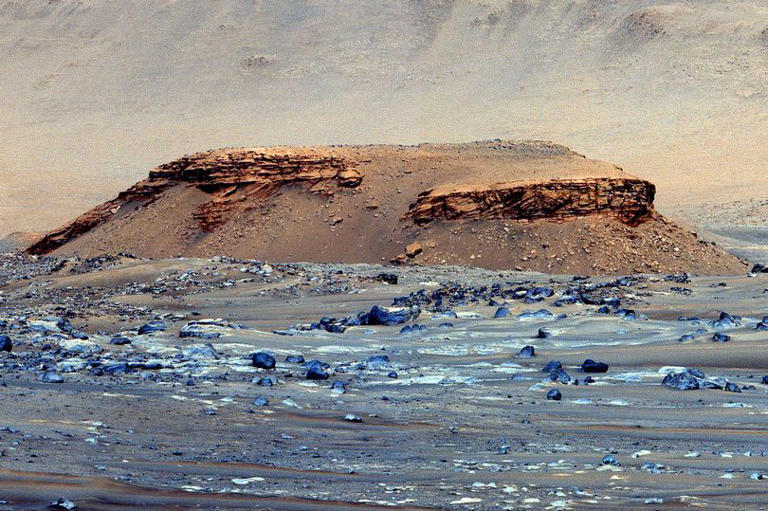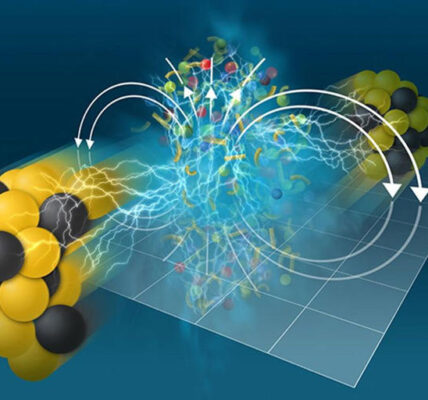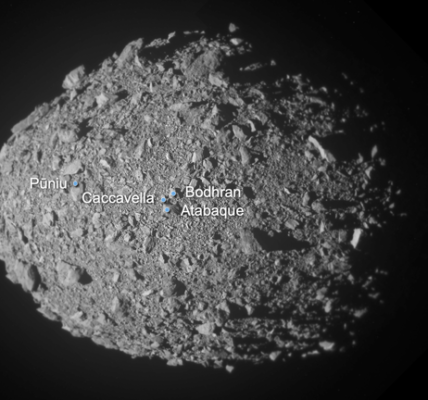Mars volcanoes ancient life could have been supported by volcanic activity on the Red Planet, according to new research from NASA’s Perseverance rover and scientists exploring Jezero Crater.

© NASA/JPL-Caltech/ASU/MSSS
Mars Volcanoes Ancient Life: Could Volcanic Activity Have Supported Life on Mars?
Mars volcanoes ancient life is an exciting topic that scientists are exploring more deeply than ever before. While many space enthusiasts focus on faraway exoplanets for signs of alien life, some researchers are looking much closer — right here on Mars.
A team led by Michael Tice from Texas A&M University, along with international colleagues, has recently uncovered new evidence suggesting that ancient volcanic activity on Mars might have created the right conditions for life long ago.
Exploring Mars’ Jezero Crater with Perseverance
Since 2021, NASA’s Perseverance rover has been studying Jezero Crater on Mars. This crater is a fascinating spot because scientists believe it once held a lake and rivers, making it a prime candidate for past life.
Perseverance is equipped with tools to examine the rocks and soil, sending valuable data back to Earth. Michael Tice and his team have been using this data to learn more about the volcanic history of Mars and how it might have created a habitable environment.
Discovering Two Types of Volcanic Rocks
One of the key discoveries from Perseverance’s work is the identification of two main types of volcanic rocks in Jezero Crater. The first type is a dark rock made up of minerals like iron, magnesium, pyroxene, and plagioclase feldspar.
These findings are important because the mineral makeup of rocks tells us a lot about how they formed and the conditions present at the time.
Complex Volcanic History of Mars
Using computer models called thermodynamic simulations, Tice’s team studied how these volcanic rocks could have formed. The results showed that Mars’ volcanic activity was likely more complex and long-lasting than previously thought.
Processes such as fractional crystallization (where minerals form and separate as magma cools) and crustal assimilation (where magma absorbs material from surrounding rocks) were happening. These are the same processes seen in active volcanoes on Earth.
This suggests that parts of Mars might have had volcanic activity over a long period, which could have produced important chemical compounds necessary for life.
Why Volcanic Activity Matters for Life
Volcanic activity is important because it releases gases and minerals that can create a supportive environment for life. On Earth, volcanoes contribute to nutrient cycles and help maintain conditions suitable for living organisms.
If Mars experienced similar volcanic activity, it could mean that the planet had pockets of warmth, water, and chemicals long enough to support microbial life.
The Limits of Current Mars Research
Although Perseverance carries advanced instruments, it still has limitations compared to Earth laboratories. This means there’s only so much we can learn about Martian rocks remotely.
That’s why NASA is planning the Mars Sample Return mission, which aims to bring rock samples back to Earth for detailed study with high-precision lab equipment.
What the Future Holds: Mars Sample Return Mission
Michael Tice is excited about this upcoming mission because bringing samples back to Earth will allow scientists to investigate Mars’ volcanic rocks in much greater detail. This could provide clearer answers about Mars’ past habitability and whether life ever existed there.
“We chose these rocks carefully because they hold clues to the ancient environments of Mars,” Tice said. “Once we can study them on Earth, we’ll be able to ask deeper questions about their history and look for signs of life.”
Why This Research Is Important
Understanding Mars volcanoes ancient life is not just about finding life on another planet — it’s about learning how planets evolve and what conditions make life possible.
The research from Perseverance and Tice’s team adds valuable pieces to the puzzle of Mars’ history. It suggests that Mars was not just a cold, dead world but a dynamic planet with active volcanoes that might have created habitats suitable for life billions of years ago.
Conclusion: Mars’ Volcanic Past Could Be Key to Ancient Life
In conclusion, the idea that Mars volcanoes ancient life could have been supported by prolonged volcanic activity is gaining strong support thanks to new research. The discovery of different volcanic rocks and the complex history behind them shows Mars might have had the right ingredients to sustain life in its distant past.
With upcoming missions like the Mars Sample Return, we are one step closer to unlocking the secrets hidden in Martian rocks — secrets that could answer one of humanity’s greatest questions: Did life ever exist beyond Earth?
Also Read:
2024 YR4 Asteroid Impact Risk: 5 Terrifying Facts You Must Know!



